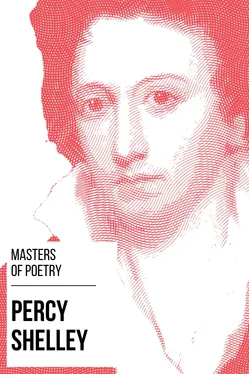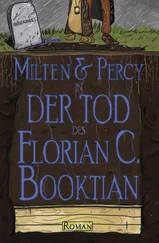There is no thought of eulogizing him in saying that he represents the ideal of personal and social aspiration, of the love of beauty and of virtue equally, and of the hope of eradicating misery from the world; hence springs in large measure his hold on young hearts, on those who value the spirit above all else and do not confine their recognition of it within too narrow bounds, and on all who are believers in the reform of the world by human agencies. He represents this ideal of aspiration in its most impassioned form; and in his life one reads the saddest history of disillusion. It is because, in the course of this, he abated no whit of his lifelong hope, did not change his practice of virtue, and never yielded his perfect faith in the supreme power of love, both in human life and in the universe, that his name has become above all price to those over whom his influence extends. It is, perhaps, more as a man than as a poet merely that he is beloved; the shadows upon his reputation, as one approaches nearer, are burnt away in light; and he is the more honored, the more he is known. For it would be wrong to close even these informal remarks without expressing dissent from the assumption that Shelley's intellectual and moral life was one long mistake. Disillusion it was, and the nature of it has been indicated by the single point of his acquaintances; but a life of disillusion and one of mere mistake are not to be confounded together. Better fortune cannot be asked for a youth than that he should conceive life nobly, and, in finding wherein it falls short, should yet not fall short himself of his ideal beyond what may be forgiven to human frailty. Shelley's misconceptions were the conditions of his living the ideal life at all, and differed from those of other youths in face of an untried world only by their moral elevation, passion, and essential nobleness; he matured as other men do by time and growth and experience, and he suffered much by the peculiar circumstances of his fate; but in the issue the substance of error in his life was less than it seems. Shelley, at least, never admitted he had been wrong in the essential doctrines of his creed and the motives of his acts, though he had been deceived in regard to human nature and what was possible to it in society.
The prose work of Shelley has remained in the obscurity which it once shared with his poetry. The formal essays, which concern the transitory affairs of the world or themes of thought remote through their generality, are valued, even by admirers of Shelley, mainly as media of his spirit; the familiar letters, scattered in old books, or collected only in a costly edition, and deprived of literary effectiveness because those of high and enduring interest have never been selected and massed until recently, have escaped any wide public attention; even the translations have been neglected. All this really large body of prose, however exalted by its informing enthusiasm, however exquisite in language, and melodious, lies outside the open pathways of literature. It is this fact which gave the element of surprise to what Mr. Arnold called his doubt "whether Shelley's delightful Essays and Letters, which deserve to be far more read than they are now, will not resist the wear and tear of time better, and finally come to stand higher, than his poetry,"—a judgment which well deserved Dr. Garnett's quiet rejoinder that "this deliverance will be weighed by those to whose lot it may fall to determine Mr. Arnold's own place as a critic." Dr. Garnett adds that, in an age when all letters approximate to the ideal set by men of business, Shelley's alone, among those of his time, rank with Gray's, Pope's, Cowper's, or Walpole's in possessing a certain classical impress similar to that of deliberate artistic work; and, secondly, that they exhibit the mind of the poet as clearly as Marlborough's do the mind of the general, or Macaulay's the mind of the man of letters. Their two prime qualities are beauty of form and transparency.
The sense of form has usually been denied to Shelley, and if by it is meant the purely critical impulse to remodel, revise, and polish for the sake of that finish which the schools prize, Shelley neither possessed it nor sought for it with any strong desire, but rather rejected it as dangerously submitting the mind to system, against which he was prejudiced. But if by the sense of form is meant the instinct for proportion, for regulated combination, for natural development of sensation into idea, idea into passion, so that the poem issues in a single harmony in the mind and heart; if, in other words, by that loose phrase is meant, not the corrective power of the critical, but the shaping power of the creative faculty working out ideal beauty directly, then both in his brief and in much of his longer poems Shelley was singularly distinguished by it. This spontaneous beauty of form, if we may so phrase it, is the only species that is found in these letters: fitness of words, sweetness of cadence, modulation of feeling in immediate response to thought and image, all conspiring to make up perfection of utterance, are continually present, but not through erasure and elaboration. Shelley's self-training in literature, almost unrivaled as an apprenticeship in its length and continuity, more comprehensive, profound, and ardent than Pope's, more vital than Milton's, had made such literary lucidity and grace the habit of his pen, and he was fortunate in employing his gift upon subjects intrinsically most interesting to cultivated men: upon the art and landscape of Italy, or his own always high human relations, or his poetic moods.
In what he says of statues and paintings he shows but slight knowledge of art. The keenness of his perceptions and the warmth of his feelings made him particularly open to sensuous effects, so that in general he worships the later schools. In painting, especially, he can hardly be considered a safe guide for others, because his praise or censure is largely dependent on his temperament for its justification: a picture which is consonant with his own imagination, and stirs it, is thereby raised and glorified, but one whose theme would have been differently developed by himself is at once made pale by contrast with the quick visions of his own vividly pictorial mind. Here is a portion of his description of a Christ Beatified:—
"The countenance is heavy, as it were, with the rapture of the spirit; the lips parted, but scarcely parted, with the breath of intense but regulated passion; the eyes are calm and benignant; the whole features harmonized in majesty and sweetness."
One cannot but feel that the face which Shelley thus summons up before us bears the same relation to the original as what the dull-minded call his plagiarisms from Lodge do to that poet's lyrics. Shelley often paints the picture over upon the outlines of the old canvas; but this transforming or penetrating power, as it will be differently named just as one believes the given picture to lack or possess what Shelley saw in it, lends such passages not only surpassing beauty, but a real value as interpretations of art. Much as Ruskin would differ from Shelley's judgments, the two are essentially similar in their mode of treatment, and in their faculty of giving the equivalent of form and color in eloquence.
The description of landscape, which is another principal topic, possesses even more plainly classic beauty. Whether Shelley writes of nature in her wild and picturesque scenes, or where the presence of man has added pathos or dignity to her loveliness; whether he flashes the view upon us in one perfect line, or unfolds it slowly in unconfused detail, he displays the highest power in this field of literature. This view from the Forum of Pompeii, which, instead of being robed with "the gray veil of his own words," seems filled with "the purple noon's transparent light," cannot be surpassed as speech at once familiar and noble:—
Читать дальше












